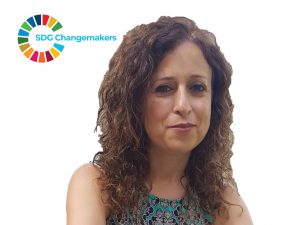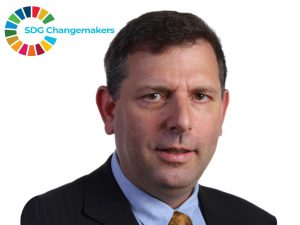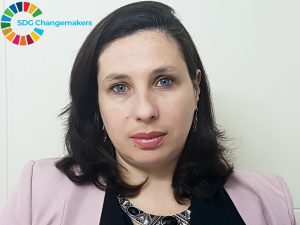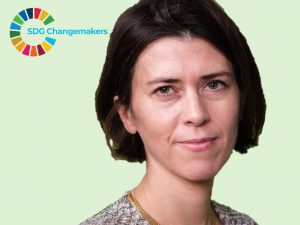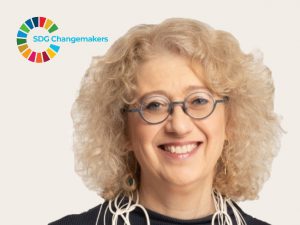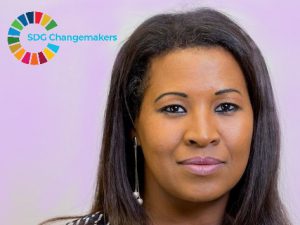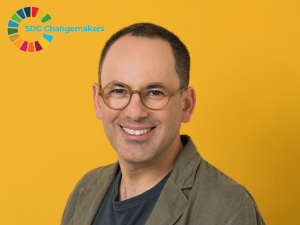Director of society, community and pre-academic programs in the Council for Higher Education (2010-2021)
SII: Please briefly describe your work
YSTC: I work at the Council for Higher Education (CHE), where I am in charge of its social-economic programs. One of the Council’s primary goals is to make higher education more accessible to population sectors where participation is significantly lower than their proportion in the general population. These populations especially include Arabs, Israelis of Ethiopian origin, ultra-Orthodox Jews and young people from Israel’s geographic and social periphery. Our goal is not only to increase the number of students from these sectors in academia, but also to encourage high-quality integration in studies while reducing dropout rates – for example: through social and academic support, incentivizing students into areas of labor market need, encouraging excellence and advanced studies.
As part of my work, I participate in significant processes that have doubled the number of Arab students in Israeli academia during the past decade. I am also involved in formulating a holistic, multi-year plan created to increase the number of Israeli students of Ethiopian origin at all degree levels – a plan that includes academic excellence and the awarding of excellence scholarships for advanced studies; both of those efforts are expected to have significant impact on Israel’s society and economy. Our unit is also responsible for budgeting academic involvement in the community, as well as for preparatory programs. These are the main tools in our tool box in preparing and supporting pre-academic students from all backgrounds to increase the likelihood they’ll be accepted and later successfully graduate from the top higher education institutions in Israel.
SII: Name three principle values that you associate with your work.
YSTC: 1. The first principle guiding me is the basic right of equal opportunity for all populations in the State of Israel.
2. It is important that the integration of different populations in higher education will be carried out with maximum sensitivity, while still preserving the unique characteristics of each sector and of each population. Academia is not supposed to, nor does it try to change the unique characteristic of populations that integrates within it, but rather embraces and respects them.
3. It is important that the opening of the higher education system to diverse populations is done in a way that leads to the advancement of academic excellence, without lowering the threshold or academic level. Therefore, we invest efforts in the pre-academic programs in order to overcome any academic obstacles and to provide the candidates with an opportunity to close any educational gaps and meet the threshold conditions of entry into academic studies. It is therefore important that increasing accessibility of higher education, which is a great gift for Israeli society, will also become a great contribution to Israeli academia by accelerating the advancement and diversification of academic excellence.
SII: What particularly motivates you to make a difference? What positive impact do you see emerging through your activity?
YSTC: I am energized and have a sense of national mission by the understanding that academia is an essential and critical key in creating social mobility that will lead to narrowing gaps and enable social change – creating partnerships among population sectors, as well as increasing the economic success of our society. While this is a long-distance marathon, the social and economic impact on our society and the economy is very clear to me.
We are already seeing impressive results of student diversity in the higher education system. Today every fourth student among undergraduate students comes from a unique population, whereas less than a decade ago the ratio was one of every eighth student. One of the significant results we are observing is the ability to increase candidates’ diversity for both public and private markets at all job levels.
At the same time, the best program and budget wouldn’t have been successful if not for the intensive daily work of the higher education institutions staff. This is also an opportunity to thank my managers and the wonderful team that works with me.
SII: Where are you headed in the future?
YSTC: From a young age, I recall my parents emphasizing the importance of giving back to society, I therefore aspire to continue to lead processes of this kind in order to generate social and economic change as a matter of national importance – something which also gives me tremendous personal satisfaction. My work is unique and challenging as social change takes time to mature and has to be executed with caution. Working at the Council for Higher Education puts me in a unique position to become an agent of change.
More about Yael Siman-Tov Cohen:
Since 2012, Siman-Tov Cohen been in her current position as Senior Official for Pre-Academic Programs, Society and Community in the Budgeting Division of Israel’s Council for Higher Education.
She received her bachelor’s degree in economics and statistics, as well as her master’s degree in economics, from The Hebrew University.
Siman-Tov Cohen was born and raised in Kiryat Gat, a mid-sized city in Israel’s southern periphery. She is married to Dr. Ofir Cohen and they have three daughters.


